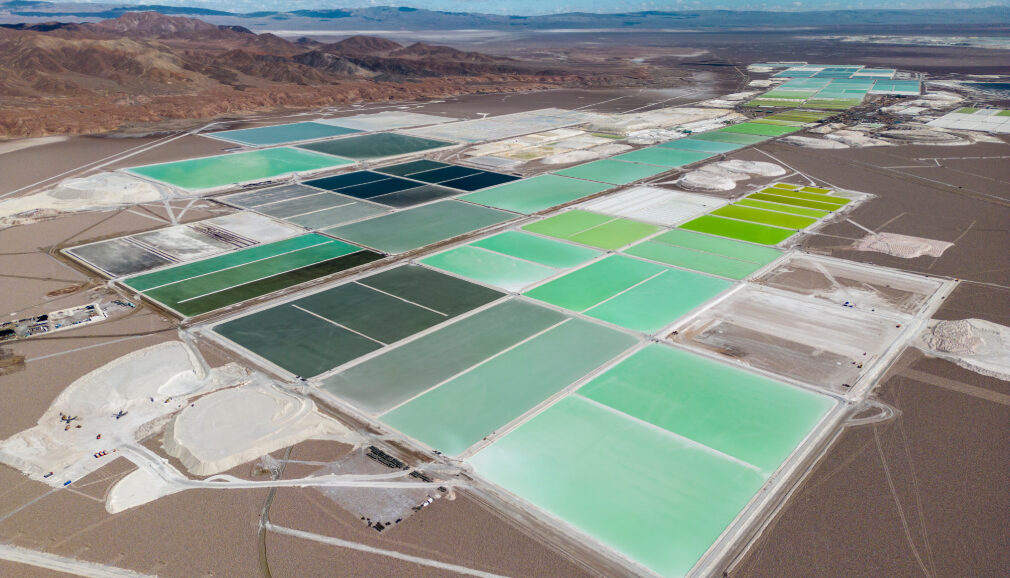
Essential information

Lithium: Begins RFI process for investors to express interest in developing projects in Chile

- The process will last 60 days and the results will be announced in July. Interested parties will be able to download the terms and conditions at www.investchile.cl.
Chile’s Mining Minister, Aurora Williams, together with the Treasury Minister, Mario Marcel, and the Economy, Development and Tourism Minister, Nicolás Grau, announced this Monday, April 15, the launch of the process for Chilean and foreign investors to express interest in developing one or more projects to explore and/or extract lithium from deposits in Chile. The request for information (RFI) process will last 60 days and will make it possible to design efficient processes for awarding Special Lithium Operation Contracts (Contratos Especiales de Operación de Litio, CEOLs) based on up-to-date information.
“As planned and in line with the announcement made in late March, we have today reached a new milestone in the National Lithium Strategy with the start of the RFI. It will allow us to define the lithium deposits for which the State will begin the process of awarding CEOLs, after carrying out an indigenous consultation process where applicable,” explained Mining Minister Aurora Williams.
The minister added, “over the last few months, we’ve been working hard to provide certainty, through dialogue and community participation, in a process that has been transparent, professional and forward-looking so that together we can build a powerful national lithium industry for the present and future of Chile. The start of this process is another step in the right direction and will occur in parallel with the indigenous consultations for the CEOLs requested by Chile’s National Mining Corporation (ENAMI) and State-owned copper company CODELCO, which our ministry is carrying out in the Atacama Region, so that the National Lithium Strategy can move forward at a steady pace.”
Treasury Minister Mario Marcel made a point of inviting private parties to express interest in the process. “In this way, we’ll be in a position to identify which salt flats have the demand and potential for productive development, so that the process culminates in the awarding of Special Lithium Operation Contracts (CEOLs), including an indigenous consultation process in each case.”
Minister Marcel stressed that this invitation “is opening up a mechanism that reaffirms that there’ll be space for everyone to invest in projects to extract a priority mineral for the development of a greener economy. The private sector will take the lead and will be able to partner with the public sector in the case of the 26 salt flats that will be open for expressions of interest.”
Minister Grau highlighted, “since the launch of the strategy, through InvestChile we’ve been in contact with 97 companies from 12 different countries that have expressed interest in being part of Chile’s national lithium industry. We therefore expect a significant level of participation following this announcement. Today, we’re inviting companies to formally express their interest in developing projects in Chile, with a strategy that is flexible and offers different modalities for lithium exploration and extraction.”
“As a government, we have two clear goals: the first is to increase our production, taking advantage of the country’s potential and the market opportunity; and the second is to consolidate the sophistication of our production. We don’t just want to remain in the extractive business, but to advance in the lithium value chain, extending the benefits into other business areas and possible new spin-off industries, as well as creating new and better jobs for Chile,” he added.
Chile has the world’s largest lithium reserves, with 36% of the global total. The demand for lithium is forecast to show positive and extended growth over time. According to a report by the Chilean Copper Commission (COCHILCO), demand for this mineral is projected to grow by an average of 15.5% per annum. This increase is based on the higher predicted consumption of lithium-ion batteries, driven by the development of electromobility.
The National Lithium Strategy is being spearheaded by the State, with a leading role for public sector corporations. Private entities will also participate in all projects, either as partners in salt flats with strategic value or by promoting their own exploration and extraction projects.
About the process
Chilean and foreign investors interested in participating in this process will be able to download the terms and conditions at www.minmineria.cl, where they will also be able to access the platform to express their interest.
As agreed in the Strategic Council of the Lithium and Salt Flats Committee, the following areas of Chile’s national territory will be excluded from this RFI process: 1) the Salar de Atacama and Salar de Maricunga, which have been defined as strategic; 2) the Salar de Pedernales and the Grande, Los Infieles, La Isla and Aguilar salt flats, in which CODELCO and ENAMI, respectively, will develop projects through public-private partnerships, for which they will be seeking partners; 3) the geographical areas that are categorized “National Park”, “Natural Monument” and “National Reserve”; and 4) the high Andean salt flats and saline lakes or geographical areas within them, the study of which the Council of Ministers for Sustainability and Climate Change has entrusted to the Environment Ministry in order to collect the background information necessary to determine their protection.
The detailed list of the salt flats that will not be part of the process is available at www.chileavanzaconlitio.cl.
Schedule
- Start of the process: April 15, 2024.
- Consultation period via email (rfi@minmineria.cl): April 15 to May 17, 2024.
- Period for responses to queries: Maximum 10 business days from the closing of the consultation process.
- Submission of expressions of interest: Until June 17, 2024.
- Publication of the results of the RFI process: Until July 9, 2024.







